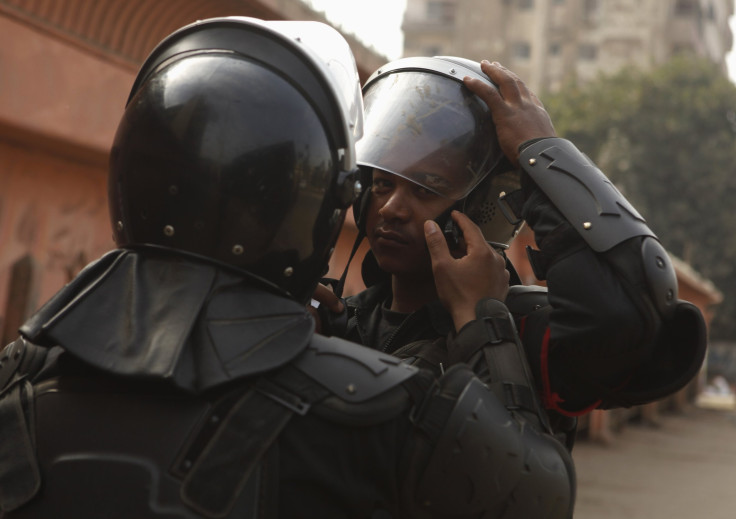Egyptian Police Officer Arrested For Killing Muslim Brotherhood Suspect

An Egyptian police officer was detained late Sunday for allegedly killing a suspected member of the Muslim Brotherhood in a Cairo hospital, Reuters reported. According to a statement by the Interior Ministry, the Islamist suspect had been hospitalized after being arrested for planting explosives in Giza late last month and was being treated for gunshot wounds from his arrest.
The ministry said in a statement that the suspect had provoked the police officer by offending him. "The suspect insulted the police officer, his family, the police force and the armed forces. He also vowed to kill him and disfigure his body... which caused the provocation," it said, according to Egypt’s state-run newspaper Al-Ahram. An investigation has been opened into the shooting death of the suspect, alleged to have been a member of the outlawed Brotherhood movement.
Hundreds of supporters of the movement have been killed by security forces since the military-backed coup against the Muslim Brotherhood government of Mohammed Morsi in July 2013. Thousands of others have been detained in the crackdown against the group, which has included harsh convictions such as the mass death sentence handed down Monday against 183 Brotherhood supporters charged with killing police officers.
The Brotherhood was blamed by Egyptian President Abdel Fattah el-Sisi for last week’s bombings in North Sinai, which killed 32 soldiers. The leader insisted that Egypt was “paying the price” for ending the group’s power, despite the fact that a Sinai-based militant group with links to ISIS claimed responsibility for the attack, the New York Times reported. The Brotherhood has publicly denounced ISIS and its cohorts on the Sinai peninsula, who in turn have long criticized the Brotherhood’s political approach.
Sisi also accused unnamed foreign governments of backing the attacks, in a charge that echoes months of accusations by his supporters against Turkey, Qatar and the Hamas government of Gaza, which are widely seen in Egypt as supporting the banned Islamist movement.
© Copyright IBTimes 2025. All rights reserved.






















